Suppose the next dataframe:
# code countries
#1 A001 [[Germany, China, Japan], [Chile, Mexico], [Poland]]
#2 A002 [[], [Japan], [Singapore, Indonesia, Micronesia]]
#3 A003 [[Tuvalu, Chile], [], [North Macedonia, Sweden]]
How could I remove all [ after its firts appareance and all ] before last appareance?
In a way thtat dataframe could look like this:
code countries
#1 A001 [Germany, China, Japan, Chile, Mexico, Poland]
#2 A002 [Japan, Singapore, Indonesia, Micronesia]
#3 A003 [Tuvalu, Chile, North Macedonia, Sweden]
data
df <- data.frame(code=c('A001', 'A002', 'A003'),
countries=c('[[Germany, China, Japan], [Chile, Mexico], [Poland]]',
'[[], [Japan], [Singapore, Indonesia, Micronesia]]',
'[[Tuvalu, Chile], [], [North Macedonia, Sweden]]')
)
